Experts look to 2023 for top M&A deals
Although Vietnam’s economy is projected to enter a period of slower growth, most other economies in the region and beyond are predicted to endure much lower or even negative growth.
Tran Quoc Phuong, Deputy Minister of Planning and Investment, said that maintaining political stability, good economic growth, stable macroeconomics, controlling inflation, and improving the business investment environment will be an important foundation to both attract and promote investment.
“These will be big drivers for Vietnam’s economic growth in 2023, and the driving force for Vietnam’s merger and acquisition (M&A) market to develop. The recent slowdown of such activities in Vietnam is expected to be short-term and will recover soon. The market in this country has always been assessed as a safe and attractive market to activate new opportunities,” Phuong said.
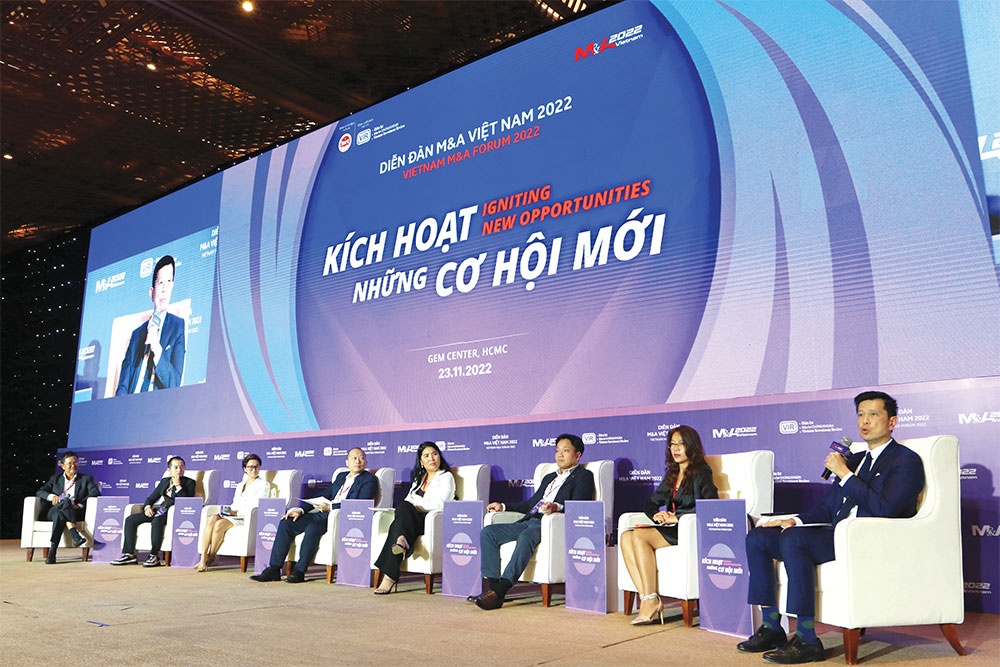 |
| Experts look to 2023 for top M&A deals |
At the 14th Vietnam M&A Forum, organised by Vietnam Investment Review last week in Ho Chi Minh City, editor-in-chief Le Trong Minh said that although the world economy was in a state of instability, Vietnam’s economy is recovering strongly after the pandemic, and has shown fairly stable resistance to external impacts thanks to the guidelines and decisions of the Party and state.
Along with the government’s efforts in restructuring state-owned enterprises, there may be some divestment of state capital out of large enterprises, thereby bringing new vitality to the M&A market.
According to KPMG Vietnam, deals in areas such as technology, retail, and consumer goods is forecast to remain active. In particular, there will be opportunities in the banking and finance sector. Although 2022 has been slow, many deals have been in the preparation stage for years and could come to fruition in 2023.
Notably, capital flows from private equity (PE) funds globally are becoming the driving force for the M&A market to accelerate. According to a 2022 report by Bain & Company, private equity funds in Asia are at a record high of $650 billion.
In Vietnam, PE and venture capital activities still grew strongly in the early part of 2022, despite uncertainties in the capital market and bad debt. In particular, the country’s innovation startup ecosystem for this year is forecast to see total investment of about $2 billion, maintaining the form of a rising star in startups in Southeast Asian countries.
Initial public offerings in the regions are also expected to have a brighter future in 2023. Although current valuations may be lower for technology companies, those with a strong business background and proven profitability will still be able to achieve best market valuations and benefit from global capital markets, KPMG added. In addition, in the context of tight domestic capital, many businesses are forced to restructure, sell assets, and call for investment due to financial pressure.
According to data analysis company GlobalData, Q3 was the worst quarter in terms of global M&A activity, with deal value down 48 per cent compared to the same period in 2021. Warrick Cleine, chairman and CEO of KPMG Vietnam and Cambodia, said that the drop in activity comes from global geopolitical concerns and the risk of high inflation affecting cross-border transactions.
Data from KPMG Vietnam shows that in the first 10 months of 2022, the total value of M&A deals reached $5.7 billion, down 35.3 per cent compared to the same period in 2021. Singapore is the leading country in cross-border transactions with about $1.2 billion, followed by the US with $570 million and South Korea with $370 million.
The average transaction size for a transaction of published value has decreased from $31.1 million in 2021 to $16.5 million in the first 10 months of 2022. Only 13 super transactions with a value of over $100 million were reported in the first 10 months of 2022, compared to 22 deals in the same period last year.
The main sectors to attract plenty of funding have included consumption ($1.2 billion), real estate (nearly $1 billion), and industry ($800 million). In particular, the energy industry has become the hottest areas of 2022 regarding value growth, reaching nearly $600 million – an increase of six times compared to the whole of 2021.
In the real estate sector, Novaland received investment of $250 million from Warburg Pincus. In energy-utilities, renewables group EDP Renovaveis signed a contract with Xuan Thien Group to buy two solar power projects with total capacity of 200MW in the south-central province of Ninh Thuan. The transaction value reached $284 million.
In the consumer goods sector, The Sherpa Company under Masan Group acquired 65 per cent of Phuc Long Heritage for $260.6 million. Elsewhere, Seletar Investments, Seatown Private Capital Master Fund and Periwinkle Singapore acquired 36 per cent in Golden Gate for about $234 million.
| Alex Crane-Managing director Knight Frank
Regarding the real estate sector in Vietnam, 2022 has been an interesting year, with total registered foreign direct investment at $3.8 billion into real estate, a 29.8 per cent increase from the same period in 2019. In this quarter, when the government initiated a review into some developers and their financing, liquidity in the markets has dramatically stopped. The fallout from this has now started to take effect, and this will create a very interesting outlook for 2023. We feel that two potential markets will emerge to pick up projects and assets from various developers that are now looking unlikely or restricted from getting access to credit. First is local-to-local, very fast transfers of assets from sellers to investors. These buyers are well-funded and opportunistic. The second will be foreign investors who will take a more conservative approach and likely seek greater discounts to valuations undertaken 8-12 months ago. What had traditionally been an in-demand market for foreign buyers in Vietnam – institutional yielding large-scale assets – will see demand cool as the number of active investors reduces. This is also affected by external impacts, as investors can consider larger discounts in gateways/core mature markets than we are seeing in Vietnam. That said, there will be a measured but real opportunity for sellers that have clean and clear development opportunities or operating assets that are in core locations in Vietnam. Investors are still looking for affordable to mid-end residential development, and well-located industrial and revenue-producing commercial assets will be the first to be snapped up through M&A. There will likely be further deals in the industrial and logistics segment between current operators as access to capital and interest rates become more burdensome. Nguyen Mai Phuong-Senior associate Frasers Law Company
We believe that cross-border energy M&As will become a hot trend in 2023. Renewable energy has been appealing to foreign investors over the past few years with attractive feed-in tariffs. Since the attractive tariff application for wind and solar power ended, deals in the power sector have been inevitably slowed. The Vietnamese authorities are working hard to build up a transparent and appealing regulatory framework for the power sector including, for example, the National Power Development Plan VIII (PDP8), the tariff mechanism for wind and solar power projects, and a direct power purchase agreement pilot. If the foregoing regulatory framework is to be finalised and become effective in 2023, it will shed light on the landscape of power generation and transmission in Vietnam from an investors’ perspective. Given the credit crisis in the real estate market, 2023 could also be the year for real estate M&A as developers may be looking for equity financing to fund their projects or divesting to cut losses. Ken Atkinson-Founder and senior adviser Grant Thornton Vietnam
In 2023 we would expect to see continued high interest and growth in M&A transactions. In keeping with Vietnam’s commitment to net-zero carbon emissions by 2050, the country will maintain strong attraction in terms of opportunities in the solar and wind sectors, but also areas such as waste-to-energy. The current upheavals and slowdown in the residential real estate sector on the back of supply constraints and tightening credit mean we can expect to see an increase in deals in residential and hospitality assets. Whilst the economy will likely face some strong headwinds from the recession starting in many of our main export markets, the middle class here is expected to continue to help drive domestic growth. As such, we can expect to see continued M&A activity in the consumer retail sector. Tech is expected to remain another active sector in Vietnam, with the nation showing that it is developing into a major startup hub thanks to the ecosystem supported by the government and private sector, and the growing technology pool. Jack Nguyen-Deputy CEO Talentnet Corporation
It will be very interesting for Vietnam in the next 6-12 months as we observe how the country’s overall economic activities will be, but one area that should remain very busy is M&A activities. There is evidence Vietnam has rebounded significantly this year and it continues to be a favoured country in ASEAN for foreign investments. However, geopolitical issues, rampant inflation, and China’s continued pandemic policy is impeding Vietnam’s economic rebound and development. As a result, the market will be ripe for industry consolidation and M&A deals. Sectors that are candidates for M&A include technology, manufacturing, energy, real estate, and retail industries. Vietnam’s continued integration into the regional and global economy, coupled with Vietnam’s inclusion in a number of free trade agreements, will attract global companies to look at the Vietnam market and a popular entry into the market is through M&A. Vietnam’s vibrant tech startups offer a number of attractive opportunities for foreign players to invest in. Real estate is another area that may see more M&A activities. The recent credit crunch in the bank sector is restricting real estate developers from further developments, and some companies that do not have deep pockets may look to foreign strategic partners to inject liquidity into their companies. Kevin Hawkins-Partner DFDL Legal & Tax
Vietnam continues to enjoy favourable macro level economic conditions for investors, such as positive GDP growth, a stable political climate, focused trade agreements, increasing urbanisation of its population, a young and educated work force, and investor-friendly regulations. These factors bode well for increased M&A activity, especially in certain sectors, as we head into the new year. New legislation requiring localisation of data will certainly increase interest in data centre projects. The new land law, expected to be issued sometime next year, may generate more interest in real estate projects, especially if issues pertaining to foreigner land use rights can be resolved. The issuance of the PDP8 will presumably provide more transparency and confidence for investment in rooftop solar, onshore/offshore wind generation, battery storage, hydrogen, and other ventures. Additionally, the current trends show positive M&A growth for Vietnam in several other sectors, such as retail, fintech, edtech, logistics, business automation, e-commerce, infrastructure, and hospitality. Medical equipment and pharma also seem to exhibit continued interest among investors. |
 | Implications of digital assets in M&A Digital assets have gained a lot of attention over retail investors, institutional investors, companies and policymakers in recent years. Despite the dramatic decline of the market, the potential growth for digital assets over the upcoming decade is expected to be high and reach tenths of trillions of US dollars market capitalisation according to prominent money managers like Fidelity and Ark Invest. |
 | Masan moves demonstrate room for cross-sector growth Masan Group’s activities over the past year or so have shed a spotlight on Vietnam’s merger and acquisition market thanks to the group’s dealmaking efforts to transform business models. |
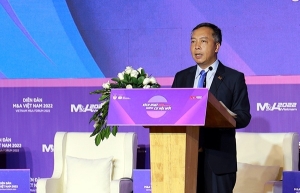 | M&A Vietnam Forum 2022: 'Igniting new opportunities' The 14th Vietnam M&A Forum 2022 organised by Vietnam Investment Review under the auspices of the Ministry of Planning and Investment took place in Ho Chi Minh City on November 23. |
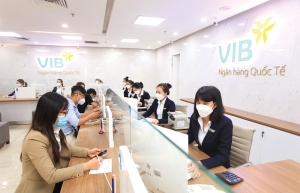 | Domestic corporations turn to global credit financing sources Given current challenging fundraising and bleak merger and acquisition circumstances, a number of Vietnamese groups are looking to financing sources from overseas credit facilities to strengthen their resilience in the face of market fluctuations. |
What the stars mean:
★ Poor ★ ★ Promising ★★★ Good ★★★★ Very good ★★★★★ Exceptional
Related Contents
Latest News
More News
- New rules ease foreign access to Vietnam equities (February 05, 2026 | 17:29)
- Vietnam’s IFC creates bigger stage for M&As (February 01, 2026 | 08:16)
- Game startup Panthera raises $1.5 million in seed funding (January 29, 2026 | 15:13)
- Cool Japan Fund transfers shares of CLK Cold Storage (January 28, 2026 | 17:16)
- Nissha acquires majority stake in Vietnam medical device maker (January 26, 2026 | 15:40)
- BJC to spend $723 million acquiring MM Mega Market Vietnam (January 22, 2026 | 20:29)
- NamiTech raises $4 million in funding (January 20, 2026 | 16:33)
- Livzon subsidiary seeks control of Imexpharm (January 17, 2026 | 15:54)
- Consumer deals drive Vietnam’s M&A rebound in December (January 16, 2026 | 16:08)
- Southeast Asia tech funding rebounds on late-stage deals (January 08, 2026 | 10:35)



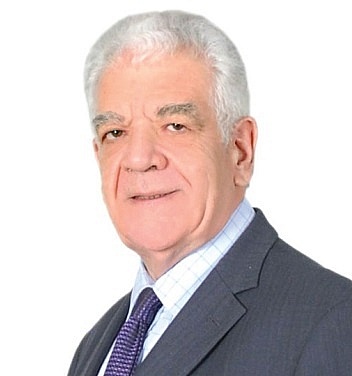

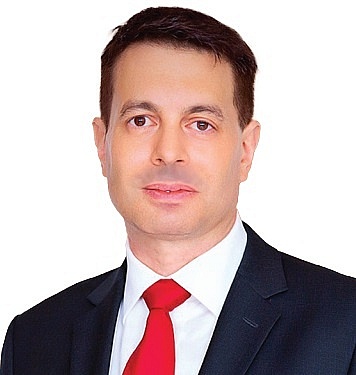
 Tag:
Tag:



















 Mobile Version
Mobile Version